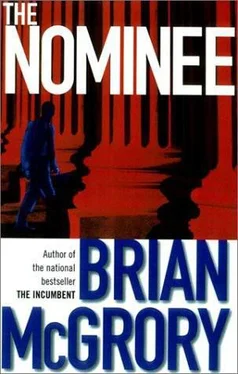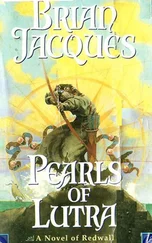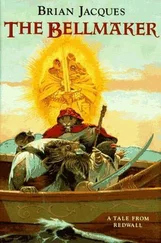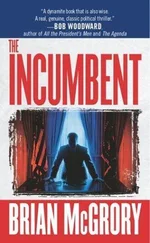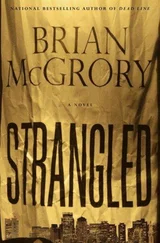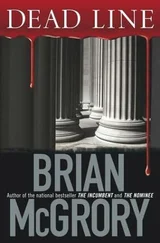He set off after me. Though his legs are roughly as long as mine, he seemed to have to run to keep up with my stride. “Jack,” he said, “we need to talk, me and you, man to man.”
I stopped short, such that he banged into my right shoulder. I whirled around, picked him up by his Zegna shirt, and slammed him against the corridor wall, narrowly missing the Pulitzer Prize plaque that Fitzgerald had won for local reporting in 1984.
“You son of a goddamned dick,” I seethed at him, my face just inches from his. “Don’t you ever call yourself a man after what you’ve tried to do. Don’t you ever carry with you even a moment’s expectation that I owe you a goddamned thing.”
He was looking down at me like I was a maniacal crazy man, a creature wholly beyond comprehension. Of course, his hair was still perfect slicked back and the clothes I was about to rip probably cost about as much as my car.
“You’re a little rodent,” I said to him, still holding him firm against the wall. “You know what, forget that. Rodents have fur. They’re too cute. What you are is a parasite, a little goddamned slimy slug trying to suck all the money out of the business that your family worked decade after decade to build.
“You are a piece of garbage, and you’re lucky I don’t break your pasty fucking greasy face.”
And with that, I let him go. He slid down the wall, not all the way to the floor, but close.
He straightened up and tucked his shirt in, trying, but failing, to salvage some semblance of dignity. “I want to cut a deal with you,” he said. “I was wrong to exclude you. I want to put this behind us.”
I was starting to calm down, or rather, come down from my anger high. I looked at him and shook my head in resigned disgust.
He said with his typically arrogant tone, “If we sell to Campbell Newspapers, Terry will agree to a provision that theRecord retains local control for five years. He’ll agree to a further provision that mandates that I’m the publisher for the first thirty months, and you’re the publisher for the second thirty months.”
He paused, eyeing me warily, half hoping his offer was alluring, half fearing that I would slam my fist into the soft tissue of his nose. Truth is, I was somewhere in between.
“Jack, it’s inevitable that this company’s going to get sold. Old family businesses like ours don’t work in this new economy. You’d have learned that your first week in B-school, if you had gone. The trusts are breaking up. The cousins don’t want any part of it anymore, yet they still have a major say because of the shares they own. The economies of scale favor large chains. And the public is headed in other directions for news, like the Internet.
“So if we’re going to get taken over, why not cut the best deal we can. What I’m offering is two-and-a-half years for you to be the publisher of one of the largest, most important newspapers in America. That’s two-and-a-half years for you to leave your mark on the company, on journalism, to fulfill some goals, and to make a lot of money. Keep in mind, you have an equity stake in this company. You stand to make a small fortune in a buyout. And who knows. If you do well, maybe Terry keeps you on.”
I looked at it slightly different. I saw it as two-and-a-half years to preside over the dismantling of a once great newspaper as a cutthroat, cost-conscious chain pares down what it views as the fat, also known as the newsroom. I saw it as two-and-a-half years of working for a militant conservative, not a real newsman.
Very recently, as in, earlier that week, the thought had occurred to me that Brent Cutter might be a murderer. Now I just thought he was a moron. But the worst part about what he was saying was that in some odd way he was starting to talk sense. Wouldn’t it be great if life were that simple, if I could just sign on the dotted line, become an instant multimillionaire, order new furniture for the publisher’s office, dine around town as one of the most powerful, eligible bachelors in the city, and not have a worry in the world. There’s only one problem with that: history.
History says to me that John Cutter and Paul Ellis were murdered. History says to me that there’s a good chance that someone within the newspaper killed them. History says to me that all those who came before me at this wonderful newspaper didn’t bust their collective ass so I could cash in on some big payday.
Now I was starting to get mad again.
“Brent, I’m dealing with some issues right now — newspaper issues, moral issues — that your money-grubbing little brain couldn’t even begin to comprehend. Here’s something else you can’t comprehend: this business is about more than the money. It’s about more than our own personal ambitions. It’s about more than holding the title of publisher. It’s about a calling. You haven’t heard it. I have. If you get in my way, I’ll rip your fucking head right off your neck.”
And I walked away. Poor Brent was sputtering something about negotiable deals as I punched through the double doors on my way down to the newsroom. I’ve never really believed in destiny before, but I had a date with it now in the form of Robert Fitzgerald.
Best as I could tell, the first impulse when you believe you’ve figured out who murdered two people you greatly respect — the very first impulse — is to call the friendly homicide bureau of your local police department. That didn’t appear to be an option here, for a couple of reasons.
Reason A: If Eric Glass was to be believed, and at this point, this pimp and crack dealer seemed more believable than anyone else I knew, then it was John Leavitt who screwed up that bungled drug raid in Mattapan five years ago. It was Leavitt, back when he was a superintendent rather than the commissioner, who handled the informant, got the information, and directed the narcotics squad. And it was Robert Fitzgerald who blamed, in print, Sweeney’s son. So forgive the living hell out of me for suspecting that Leavitt may have been behind the fact that John Cutter’s murder evidence was rotting away in the basement of the coroner’s office. He didn’t want Fitzgerald to be caught lying, because he was a direct beneficiary of one of those key lies.
Reason B came in the form of a telephone call as I momentarily stopped in the familiar environs of the mostly empty newsroom just to clear my head.
“Flynn here.”
A pebbly voice said, “Sweeney here.”
“Hank?”
“Jack, listen up. Don’t say anything until you hear me out. Don’t come to this hospital. One of the police guards told me this morning that Travers found a partial fingerprint on the gun and matched it to a print of yours he pulled off your boat.”
Sweeney paused here to wheeze a little. I heard him swallow hard, summon some strength, and continue. “He’s got a police detail here waiting for you to arrive, and when you do, they’re going to arrest you for leaving the scene of a crime.
“So son, just stay put and I’ll call you later.”
“Hank?”
“Yeah, Jack.”
I wanted to tell him that I knew about his wife, about his son, about his anger and his loneliness and the injustices that made his life only a vacant shell of what it should have been. But I couldn’t, not there, not then, not over the telephone. So I asked, “How are you doing? You holding up?”
“I’m an ornery old man with a bullet in his stomach, a doctor who says I’ll be fine, and a wife who’s ready to kill me after I get better.” Pause, wheeze. “So yeah, I’m okay, Jack. I’m feeling better every day.”
I was quiet for a moment, a silence born of sadness. He said, “You sound down. Don’t be. We’re going to solve John Cutter’s murder, you and me. We’re going to do that together. And when we do that, maybe we’ll have Paul Ellis’s killer as well.”
Читать дальше
